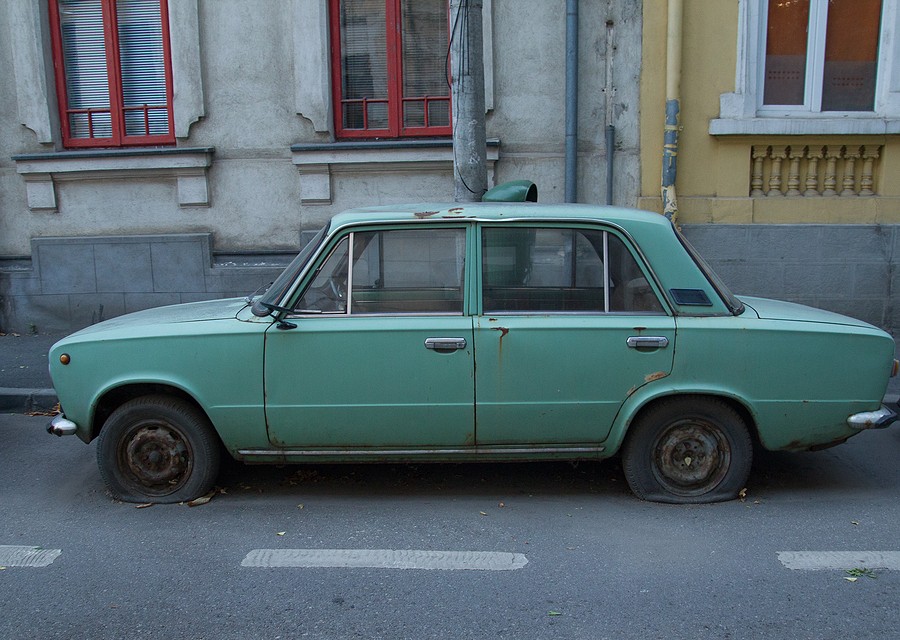Weather can have a significant impact on a used car's value, and it's important for car buyers and sellers to understand how different weather conditions can affect a vehicle. Here are some key ways that weather can impact a used car's value:
- Rust and corrosion: One of the most obvious ways that weather can affect a used car's value is through rust and corrosion. Rain, snow, and other forms of moisture can cause metal components to rust, which can weaken the structure of the car and reduce its value. Salt, which is often used to melt ice on roads in cold weather, can also cause corrosion. Cars that have been driven in areas with harsh winter weather are more likely to have rust and corrosion issues, and this can significantly reduce their value.
- Paint damage: The sun's UV rays can fade and damage a car's paint over time, which can lower its value. This is especially true for cars that have been parked outside for long periods of time without a cover. In addition to fading, the sun can also cause the paint to become chipped or peeling, which can be costly to repair.
- Interior damage: Extreme heat and cold can both cause damage to a car's interior. For example, extreme heat can cause the dashboard to crack or the seats to become worn and faded. Cold weather can cause the rubber seals around doors and windows to become brittle and crack, which can lead to leaks and drafts.
- Mechanical issues: Different weather conditions can also cause mechanical issues with a car. For example, extreme heat can cause the engine to overheat, while cold weather can cause the battery to die or the oil to thicken. These types of issues can be costly to fix, and they can significantly reduce a car's value.
- Tire wear: The type of weather a car is driven in can also affect the wear on its tires. For example, driving on rough, icy roads can cause the tires to wear down more quickly, which can be costly to replace. In addition, cars that are driven in areas with extreme heat may experience more rapid tire wear due to the heat causing the tires to expand and contract.
- Resale value: The overall resale value of a used car can also be impacted by the weather conditions it has been exposed to. For example, a car that has been driven in an area with harsh winter weather may have a lower resale value due to the potential for rust and corrosion, as well as other mechanical issues that can be caused by cold weather.
So, what can car buyers and sellers do to mitigate the impact of weather on a used car's value? Here are a few tips:
- Check for rust and corrosion: If you're buying a used car, be sure to check for rust and corrosion, especially if the car has been driven in an area with harsh winter weather. Look for rust on the underside of the car, as well as on the doors, fenders, and trunk.
- Consider the paint condition: If the paint on a used car is faded or chipped, it can be costly to repair. Be sure to carefully inspect the paint condition, and consider whether the cost of repainting the car is worth it.
- Inspect the interior: Make sure to check the condition of the dashboard, seats, and other interior components. Look for cracks, fading, or other signs of wear and tear.
- Have the car inspected by a mechanic: If you're buying a used car, it's a good idea to have it inspected by a mechanic before making a purchase. This can help you identify any potential mechanical issues that may need to be addressed.
-
Consider the weather conditions the car has been driven in: If you're buying a used car, it's important to consider the weather conditions it has been driven in. If the car has been exposed to extreme heat, cold, or other harsh weather conditions, it may be more prone to certain types of damage.
- Keep the car well-maintained: Regular maintenance can help to prevent mechanical issues and extend the life of a car. If you're selling a used car, be sure to provide records of any maintenance work that has been done to the car. This can help to increase its value and make it more appealing to potential buyers.
- Protect the car from the elements: If you're selling a used car, consider keeping it in a garage or using a car cover to protect it from the elements. This can help to prevent fading, chipping, and other types of damage to the paint and other exterior components.
In conclusion, weather can have a significant impact on a used car's value. Rust, corrosion, paint damage, interior damage, mechanical issues, and tire wear are all potential concerns that can be caused by different weather conditions. Car buyers and sellers can mitigate the impact of weather on a used car's value by carefully inspecting the car for signs of damage, having it inspected by a mechanic, keeping it well-maintained, and protecting it from the elements.


